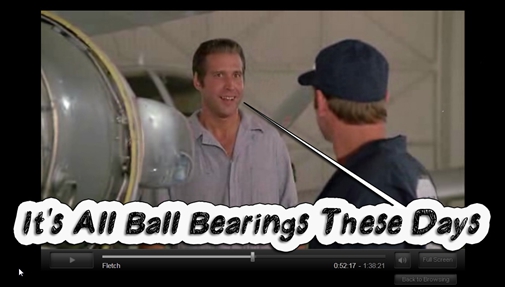The third of our SEJ Summit Atlanta interview series is with Grant Simmons, the VP of Search Marketing at Homes.com. We are so excited to learn from Grant and our seven other speakers at our final SEJ Summit this year, which will be held on November 10th.
If you’d like to learn from Grant and our other great speakers (covering many other topics in search, marketing, and beyond) on November 10th, we still have some complimentary tickets available for our Atlanta marketing event.
Keep in mind, anyone can request a free invite to attend SEJ Summit conference, but big-brand, enterprise marketers will receive priority for the complimentary tickets. If you prefer to skip the application process, there are tickets available for purchase on Eventbrite.
The SEJ Summit series was made possible courtesy of our partner, Searchmetrics. Their “search experience optimization” software makes digital marketing better, faster, and more profitable.
Request your invite to SEJ Summit Atlanta here.

Your SEJ Summit presentation is titled “Influencing: Creating Behavior-Changing Content (or how I tickle, titillate, taunt & terrify audiences)” which sounds like it will be fascinating. As consumers get more and more savvy to marketing, how effective is trying to change behaviors and mindsets?
I actually think it’s easier to influence than it used to be. I’m one of the ‘old guys’ of marketing, and I remember when the channel options consisted of TV, radio, billboards, newspapers, posters, yellow pages, etc. You get the idea. Most of this was very broad in its reach and only really targeted by geography or demographic information driven by hand surveys.
The digital realm allows one-to-many and person-to-person types of engagement where I can target down to a ZIP code, or even an actual physical location. Add to that the ability to know who my prospects most probably are, where they visit on the web and what kind of content they’re consuming, and it’s much easier to connect, converse and influence the consumer, because – if you know what they desire – you know them that much better!
If it really was just ‘science’ we wouldn’t need the creative sides of our brains, though! I hate to overuse the mantra that SEO and content are part art, part science, but it’s true. Once you know what motivations and emotions potentially drive your audience(s), then it’s a matter of creatively arriving at the content that going to do the best job or influencing them. And that’s generally about asking open-ended questions to a broad audience and then leveraging that research to help drive content strategy, content formats, and content distribution tactics.
Part of your presentation will cover how to create demand where none exists. What does that really mean and will it work in all markets?
It’s not exactly where zero demand exists, but maybe it’s currently a zero demand for your particular brand, product, or service. Let me give you an example of a business-to-business client I worked with a few years back. They manufactured – amongst other things – ball bearings. Yep. A pretty sexy business model to be asked to promote! Imagine you’re an engineer, you’re not aware of this particular B2B company, but you’re cruising the tech blogs when you see “Power Loader Robot lifts 10 times a human’s strength”. It piques your interest (why wouldn’t it), you click-through and you discover the robot exoskeleton is driven by sensors of a company that makes the world’s smallest ball bearing.

Now you may not need anything at that moment in time, but knowing that the product is available, and knowing where to get it, and that the company does ‘cool sh*t’, puts them and their product into your consideration set for purchase, and may even drive an idea for a new product initiative.
It’s an obtuse example of creating awareness and desire, and potential need, for a product most people think is an impossible sell.
If you’re after a “simpler” example, let’s say it is 11:45 pm and it’s almost time for lunch. You’re hungry, but you haven’t quite made up your mind what to eat. You’re reading a story of how some political party is putting forward healthy, nutritional food legislation to combat childhood obesity. The article mentions some healthy food options for adults too! Included in the article is a small infographic about the benefits of kale salad as a healthy lunch option and as part of a weight-losing diet! You then search for a local salad place for lunch. Why not? You definitely want to be a healthier, leaner you!
In both of these examples, as a marketer we can leverage content to create and drive consumers towards our product, service, or at the bare minimum, get those brands, products, and services into their consideration set for their next purchase.
Even though you will be speaking about content marketing, you have a lot of experience in SEO. How do you think your SEO experience changes the way you look at creating content?
I think it’s a travesty to consider SEO as anything more than another marketing channel. Travesty I say!
But seriously, I’m a marketer first, who just so happens to ‘get’ SEO from playing around with site visibility before Google even reared its head. Really the core of SEO is ensuring visibility for a brand, product, or service in search results, but the effort, techniques and expertise to enable that has evolved beyond the traditional ‘technical SEO’ plus content plus link building, to a more holistic approach involving social, brand building, persona development, analytics, UX, industry research, etc.
I’d hate to think that the creation of content would ever exist in a vacuum, without a full understanding of the 5 Ws of journalism: who, what, where, when and why (should anyone care – I took some liberties with the last one!). There’s still many folks who leverage external teams who don’t “get” the brand, and silo the content folks outside of the SEO team. Major challenge.
Ultimately, my SEO experience drives an ‘inclusive’ viewpoint. Everyone in a company is in the SEO team, and anyone can contribute content to the mix. At its core we’re trying to connect with customers and / or prospects with content, the SEO team may not be the best folks to author, produce, or create that content, but they should be the arbiters or the overall content strategy; proliferating topic expertise, ensuring consistency, and measuring the effect.
You have more than 22 years of experience in the field. What change in the last two decades surprised you the most?
How little has changed, how much has changed, how evasive I can still be with questions.
I’m not sure about ‘surprise’, but the thing I’m most *happy* about is the recent push from search engines of a ‘quality’ mantra. As both a marketer and consumer, I don’t want to be bombarded with irrelevant advertising nor feel like my attention is undervalued.
20 years ago we didn’t quite have the same – or as many – choices as we do now. #1 Brands fought for our attention against the number 2 and 3 brands. Now 50 companies are vying for mind and attention share, with essentially the same sized audience pool and relatively similar products.
The reason smaller companies can compete over the last 10 years is that digital is relatively easy – and relatively inexpensive – to scale, so everyone did exactly that – scale without substance – scale without respectful regard for user sentiment, purely for potentially immediate ROI metrics.
What’s happening in the last five years is actual thinking beyond immediate ROI to longer-term success through drip and retention ideologies – understanding that brand loyalty is one of the key components to a businesses’ success online. It’s meant that social media has had to be incorporated into a search strategy because that’s where interactions can actually matter – to both brands and customers.
I think now we have a chance to engage on a much more personal level, with a much more personalized approach to our marketing, whether it’s targeted content, creative, or conversation.
So my biggest surprise is how so few companies today actually leverage the quality and value they can bring to prospects and customers through the use of personalization, personal service, and person-to-person communication.
Bonus Question: What piece of technology are you most excited to see develop over the next five years?
I’m a massive self-driving car fanatic. Apart from the social ills it’ll solve (have you ever driven in LA?), and the lives it’ll save, there’s massive opportunity for marketers of all kind to influence a captive audience whose lifestyle patterns can be effectively tracking down to the street level. I can imagine Detroit, Frankfurt, and Tokyo panicking with the competition of tech companies like Apple, Google, and Microsoft. I’m also imagining the day of the ‘free car’ sponsored by the ads you’re obliged to watch or the external ads a connected car might be able to display en route.
Think about the truly mobile targeted opportunity of the always online car: restaurants, real estate, entertainment, work, all location-aware, behavior aware (destinations you chain together, e.g.), time aware, (when you drive to the gym, the grocery store, so forth), friends aware (I’m out.. meet up at [enter sponsored bar here]), and proactive (It’s 6 pm, are you hungry?), presented on a large internal screen (the windshield!) with augmented reality, and you have the search marketer’s dream. Ads / ad units will be different of course, but tying into an existing need, or creating the awareness of a brand, product, or service will still be the bailiwick of the digital marketer.
I think you’re right, that’s our future. Sounds weird now, but eventually if will be normal! Thanks for the great interview, and we can’t wait to hear more from you at SEJ Summit Atlanta!
Don’t forget, you can still request tickets to our SEJ Summit Atlanta marketing conference, taking place November 10th at the Westin Peachtree Plaza.
Image Credits
Featured Image: A. and I. Kruk/Shutterstock.com
In-post Photo: Image by Grant Simmons





![AI Overviews: We Reverse-Engineered Them So You Don't Have To [+ What You Need To Do Next]](https://www.searchenginejournal.com/wp-content/uploads/2025/04/sidebar1x-455.png)